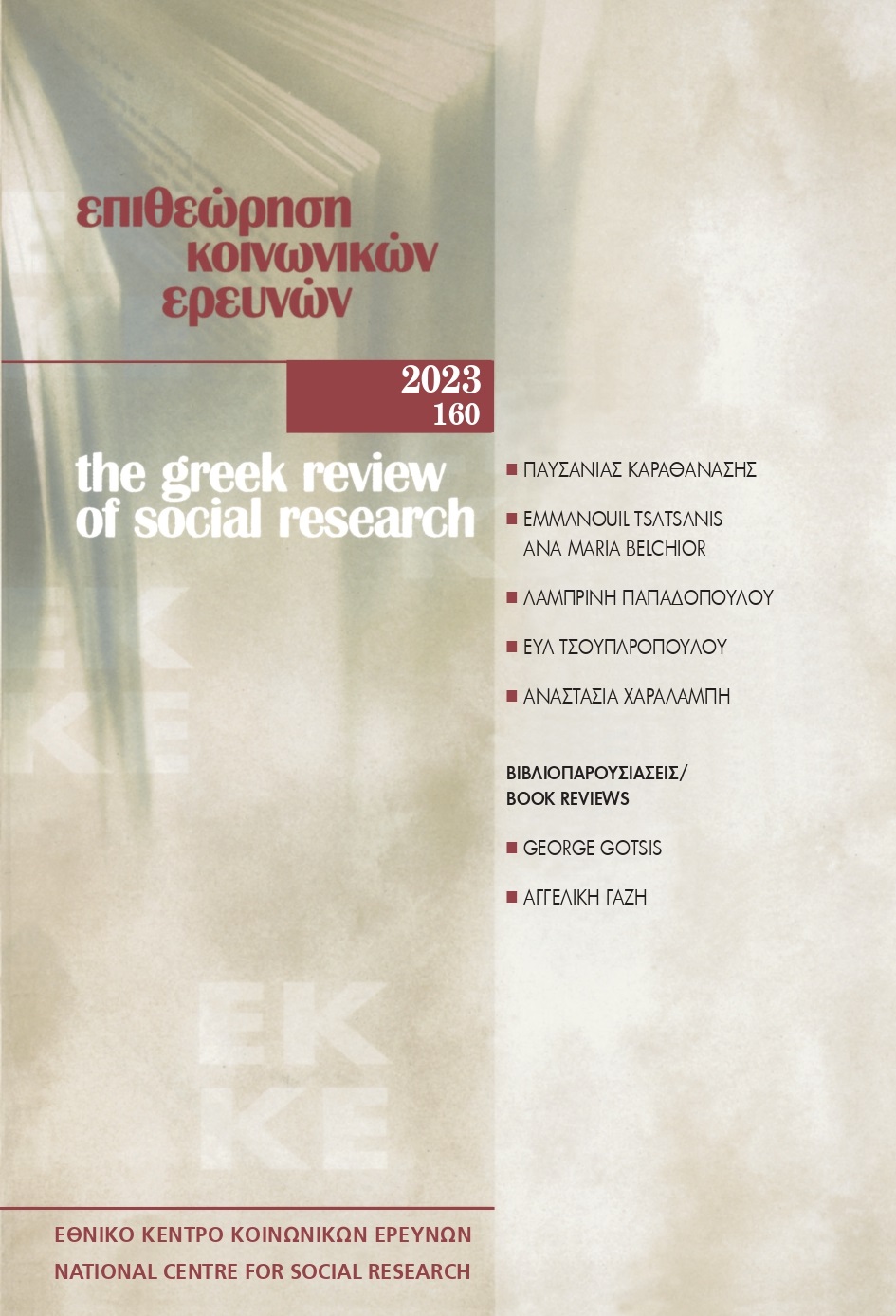“Kyprei” and “kalamarades”: Νegotiations of Greek hegemony from the margins of the Greek-speaking world

Abstract
Based on ethnographic research carried out in Greece and Cyprus in the period 2020-2021, the article concerns the relations between the two countries and their citizens. Inspired by recent changes in the two countries, and specifically by the new Greek migration of the crisis, I explore contemporary negotiations and transformations that take place both at the official level of relations between the two countries, and in the everyday life of their citizens. In particular, the article explores issues of familiarity, cultural distance and cultural hegemony, as they appear between the crypto-colonial Greek and the post-colonial Cypriot context and are transformed in the periphery of the Greek-speaking world.
Article Details
- How to Cite
-
Karathanasis, P. (2023). “Kyprei” and “kalamarades”: Νegotiations of Greek hegemony from the margins of the Greek-speaking world. The Greek Review of Social Research, 160, 3–38. https://doi.org/10.12681/grsr.33160
- Issue
- 2023: 160
- Section
- Articles

This work is licensed under a Creative Commons Attribution-NonCommercial 4.0 International License.
Authors who publish with this journal agree to the following terms:
- Authors retain copyright and grant the journal right of first publication with the work simultaneously licensed under a Creative Commons Attribution Non-Commercial License that allows others to share the work with an acknowledgement of the work's authorship and initial publication in this journal.
- Authors are able to enter into separate, additional contractual arrangements for the non-exclusive distribution of the journal's published version of the work (e.g. post it to an institutional repository or publish it in a book), with an acknowledgement of its initial publication in this journal.
- Authors are permitted and encouraged to post their work online (preferably in institutional repositories or on their website) prior to and during the submission process, as it can lead to productive exchanges, as well as earlier and greater citation of published work (See The Effect of Open Access).


